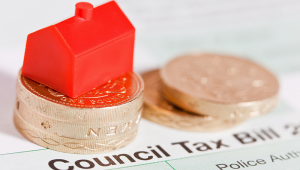The breathtaking cheek of the bankers, the CBI and their chums in the Taxpayers’ Alliance demanding a public sector pay freeze is enough to drive a union maid far beyond distraction.
After nonchalantly pocketing a whacking £150bn–£350bn hand-out of public money (depending on who you believe) to rectify their misdeeds, City types now expect Unison members and taxpayers who bailed them out to pay again for their unsolicited generosity through public service cuts and pay freezes. Financial Services Authority chair Adair Turner meanwhile warns of signs of a speedy return to bad habits in the Square Mile.
Audit Commission chief executive Steve Bundred’s intervention on the subject of public sector pay has at least forced the issue into the open. Those who really understand the subject, like research organisation Income Data Services, point out that private sector pay is far from frozen, with overall increases largely forced down by the fall in City bonus earnings. Two-thirds of companies are increasingly paying between 1% and 4%. Public sector pay restraint has already led to below-inflation rises in recent years and only frontline catering, cleaning and care jobs are paid less in the private sector than in the public. Private sector pay envy is misplaced.
Women will be hardest hit if earnings stand still. Sixty per cent of all public sector workers are women – rising to around three-quarters in the NHS, local government and education. Few do it for ‘pin money’ – many households are dependent on their earnings despite the huge gender pay gap, low pay and part-time penalties facing many. The government would do well to carry out an equality impact assessment of any move to halt pay rises before the idea goes any further.
Earnings for the same work vary enormously across the public sector too. Cleaning and catering staff in the NHS earn about £3,000 more each year than their local council equivalents because equal pay has rightly been centrally funded in the NHS through Agenda For Change. Prospects for career enhancement are also far better. Local government workers are right at the bottom of the pay heap, earning less than every group, except sixth form colleges and the tiny Driving Standards Agency.
Other dimensions to the debate have been missed entirely. Let’s take local government again. First is the myth of inflexible, universal pay rates across councils, set through national collective bargaining – a myth constantly peddled by the Chartered Institute of Personnel and Development and human resource professionals who should know better. Even within the centrally negotiated agreements, pay for the same job differs from council to council – the result of local flexibility built into the system over a decade ago.
Many local government services are now provided by agency workers who are paid just the national minimum wage, with no pension, holiday or sick pay entitlements. Agency expenditure grew to £800m in English councils alone by 2008. Then there are new starters on contracted-out services, whose pay and conditions are generally worse than those of employees transferred from councils.
Not all public sector pay is set through independent pay review bodies either. In local government – the largest bargaining group – pay is a highly politicised matter. Although council reserves grew to £12bn in the five years to 2008, pay declined in relation to average earnings and the national minimum wage – except for chief executives. This year our members in England, Wales and Northern Ireland were offered 0.5% with the threat of withdrawal if it was not accepted by June 1. The offer was once again less than that offered to other public sector groups and it was rejected. Constructive proposals arising from six-hour talks on May 21 have still not been shown the courtesy of a response.
Meanwhile, the Local Government Association's Conservative group leader, who we hear is opposing a better deal, has paid his own workforce in Buckinghamshire County Council 2.25%. Conservative councils across the Southeast that have also opted out of central bargaining have increased pay by between 1% and 4.8%. David Cameron might have pulled back from the threatened abolition of pay review bodies, but I wonder what he makes of that?











